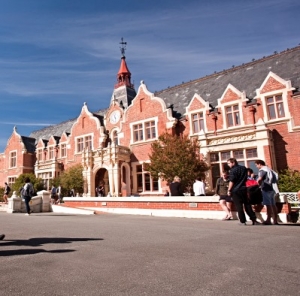Lincoln University is experiencing strong growth in new student enrolments across all areas of study, latest figures show.
New enrolment numbers have returned to levels similar to 2010, before the University experienced a drop in enrolments between 2011 and 2014, says Jeremy Baker, Lincoln University's Deputy Vice Chancellor International and Business Development.
"It's great to be back on track as far as new student enrolments are concerned," he says.
The official enrolment figures show postgraduate programmes are faring especially well, attracting 60% more new students as at 3 March than they did at the same time last year.
There are also 20% more new students at the diploma and certificate level, and 5% more new undergraduate students compared to the same time last year.
"The particularly large increase in postgraduate level has been driven both by new PhD students and greater numbers of taught Masters students," Baker says.
"People are wanting to upskill in land-based areas and our focus and specialisation in this regard allow them to do that."
New international student enrolments have also risen sharply, with a 46% increase in numbers compared to last year.
Baker says the significant rise in this area could be partly due to a new price guarantee for international students.
"The fee international students start with is the fee they will pay for their whole degree, provided they have good academic progress."
"The University has also jumped from 471 to 411 in international rankings this year, which has probably also contributed to increased enrolments of international students."
Key programmes have experienced significant growth, with the Bachelor of Agricultural of Science and Bachelor of Science degrees attracting 20% more new enrolments than last year. A fifth more students have also enrolled in the Diploma of Agriculture programme.
New programmes are also going from strength to strength, with enrolments doubling for the Bachelor of Agribusiness and Food Marketing and Bachelor of Environment and Society degrees, which were both developed following a 2013 review.
At postgraduate level, both the Master of Science and Master of Science in Food Innovation have seen twice as many new students this year, and there are 11 more PhD students.
Overall, equivalent full-time student (EFTS) have increased from 1,484 in 2014 to 1,506 as at 3 March this year.
Based on the new student enrolment growth in Semester 1, Baker says the University expects to exceed last year's total EFTS of 2,984.
"We are now on a growth track," he says.











